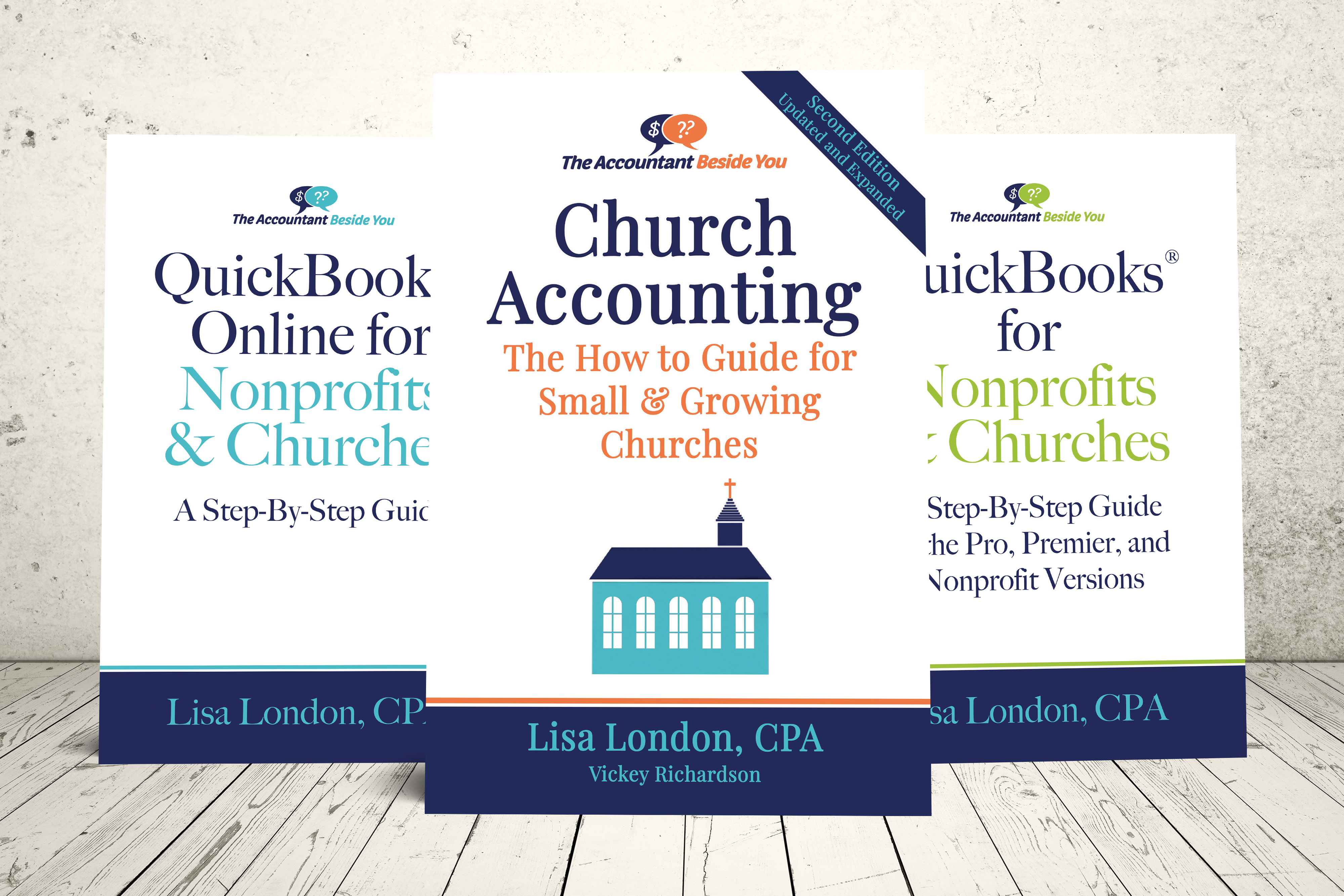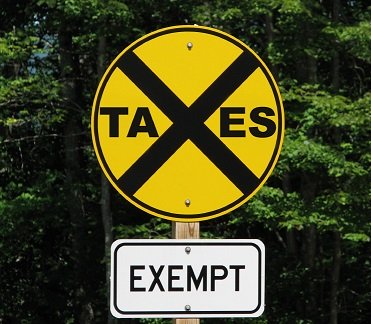Benevolence Fund
Why Every Church Should have One Properly Administered
The greatest advantage of having a benevolence fund program properly set up is to ensure donations to that plan will be considered tax-deductible and comply with IRS regulations.
For example, Joe Smith, a member of your church is diagnosed with a serious illness.
Your church would like to help this member with some gas money for going back and forth to his multiple medical appointments.
You have a proper benevolence policy in place; all the criteria listed in your policy for helping recipients has been met, so you issue him a tax-free benevolence payment.
However, consider another example. The church does not have a benevolence program in place, and several of the members of your church are wanting to give an offering to help Joe Smith.
In this scenario, the contribution is not tax-deductible and in some instances, the church may not even be able to accept offerings that are earmarked for specific individual as these are considered pass-thru contributions. See IRS publication 3833 which states “Donors cannot earmark contributions to a charitable organization for a particular individual or family”.
Even with the first example where your church has a benevolence policy in place, it is unwise to take up a special offering for this person. Instead, encourage your members to give to the benevolence fund regularly. The contributions solicited in this manner are tax-deductible to the donor.
See more questions and comments on benevolence payments including a very detailed and needful response from Bill OConnell, CPA...Benevolence Questions and Answers
Why You Need a Benevolence Fund Established:
Individuals (both members and nonmembers) will often seek out churches when they are in need.
The most common requests for benevolence includes:
- utilities
- rent
- lodging
- food
- medical expenses and transportation
- funerals
Your first step should be to create a Benevolence Committee (If you are unable to create a benevolence committee, then your board of directors will be the one responsible for the creating of a benevolence policy and overseeing it).
This committee will be ultimately responsible to the board of directors and will be responsible for drafting and creating your benevolence policy. The guidelines for that written policy should have the following components:
1. All benevolent expenditures meet at least two requirements:
- Needs
- Recipient Resources
Need is defined as something that is necessary or a necessity. It is up to the church to define what exactly "Need" consists of in their policy.
2. It should also include:
- what kind of needs is eligible for benevolence payments
- who will make the decision as to what "needs" the church may or may not assist
3. Written documentation that would show the need could include
- benevolence application or request form should be completed and filed for anyone requesting benevolence
- cut off notice from the utility company
- medical bill
- documentation verifying need
Some documentation that would satisfy the second requirement, (lack of resources) are:
- paycheck stub
- tax return
- copy of a bank statement.
- signed statement that states they lack the resources to pay for their need
There will be times that these written requirements might not be able to be satisfied. In the case of the tornado that hit Moore, Oklahoma, there were many individuals that was left with nothing but the clothes on their back. Everything was blown away by the massive tornado that hit that town.
Many of our surrounding churches here in Oklahoma were an immediate source of help with clothing, food, and even providing temporary shelter for many of the victims. However, written documentation in such a case as this, can be provided in the form of a memo explaining the situation from the benevolence committee, pastor, or staff member in charge of benevolence payments.
Here is a free sample Benevolence Request form!
Discretionary Benevolence Funds:
Some churches set up a discretionary benevolence account so that their pastor could meet needy individuals’ needs privately or without having to go before a benevolence committee. However, there are special precautions you need to set up to avoid all amounts coming into the fund, becoming taxable income to the pastor:
- require at least two signatures
- minister should account for the expenditures
- require written documentation as in the examples above
Note: A discretionary benevolence account is discouraged by many "church accounting experts".
Benevolence for Board Members, Employees, and their Families:
Board members and their direct family members cannot receive benevolence from your church. The reason they are ineligible to receive any financial benefits from your church is spelled out in Treasury Regulation 53.4958-39(b). The IRS considers them disqualified persons due to their position of substantial influence in your
tax-exempt organization.
Giving financial assistance to any "disqualified person" can be considered private inurement or excessive benefit transaction. Section 4958 of the Internal Revenue Code details the laws regarding the hefty penalty taxes that can occur when the IRS considers a tax-exempt organization to have committed one of the above mentioned transactions.
You may be able to assist an employee with your benevolence fund; however, the Internal Revenue Code requires
all benevolence payments provided to employees to be considered taxable
income and included on the employee’s W-2. You should even withhold all
applicable payroll taxes like the payment was wages if the employee is
not a minister.
The same rule applies on benevolence payments made directly to those employees or even those paid on behalf of the employee, such as a doctor bill.
Benevolence to family members of employees can also be considered income to that employee also. Read Internal Revenue Code Section 102.
However, there is an exception to this rule. If employees suffer losses as a result of a national disaster, the benevolence payments are tax-free, as long as they are for qualifying expenses. The requirements for that exception are quite lengthy, so see section 139 of the Internal Revenue Code. For more detailed information, see IRS publication 3833.
Earmarked Benevolence Contributions:
Remember that contributions to specified individuals are not tax-deductible. In order for contribution to be considered tax-deductible, the church or organization must have full control over the destination of that gift.
For
example, Joe Smith has been laid off for over six months and is
struggling to pay his rent. Mary Jones hands you check with the church’s
name on it and tells you she wants her check to go to Brother Smith to
help with his rent.
Even though Sister Jones does not have Joe Smith named on the check, she has taken away the church's control of her contribution by specifying verbally that she wants it to go to Brother Smith.
There are two options to consider before accepting a gift earmarked for specified individual:
- One option is to refuse to accept the check. See IRS publication 3833 which states donors cannot earmark contributions to a charitable organization for particular individual or family. You could inform her that her thoughtful gift would probably be very much appreciated by Bro. Smith but that she needs to give her check directly to him herself as the church cannot handle pass-thru contributions.
- Second option would be to accept the check and stamp “NONDEDUCTIBLE” in red ink on the front of the check. That action would let the donor know that they could not use that particular check as a tax deduction with their itemized deductions (Schedule A) in their personal income tax forms. Any local office supply store can usually make such a stamp for your church. It also goes without saying that you should make sure to not include that nondeductible contribution on that donor’s annual contribution statement. If it is included, there should be a notation indicating that particular gift is not tax-deductible and was not included in their deductible total.
Every church should have a benevolence fund and should have a written policy spelling out how that fund is managed!
Written Benevolence Policy:
Your benevolence policy should include the following wording or something similar:
- In the exercise of its religious and charitable purposes, ABC Church, has established a benevolence fund to help individuals in need.
- ABC Church members are welcome to suggest individuals that they think would be good candidates for ABC Church’s benevolence fund. Donors may contribute to the fund at any time. However, donors may not specify that their contributions should go to the specified individual. (Their suggestions can only be just that …suggestions…not requirements of their contributions.)
- ABC Church has full control of administrating its benevolence fund. (Your policy should also spell out who exactly will make the final determination on how much and which benevolence applicant will receive payments.)
- The purpose of ABC Church’s benevolence fund is meet qualifying individual’s basic needs. (You will need to spell out exactly what kind of assistance your church provides and what it CANNOT provide, when it can be provided, and how the assistance should be provided.)
- Check should be made payable to "ABC Church" with a notation that the funds are to be placed in the church’s benevolence fund.
- See more documentation requirements in Keith Hamilton’s article: Handling Benevolence Gifts According to IRS Guidelines
In conclusion, no matter what country you live in, every church should have a benevolence fund to help needy individuals … not only in their church, but in their communities as well. It is also equally important to have a written benevolence policy in place to set up and administer that fund.
Check with your country and local area's nonprofit laws to determine what should be included in your benevolence policy and the best way to administer your benevolence fund.
Even in the US... many state and local authorities regulate charitable solicitation, so check with your local laws if you are soliciting funds for a particular individual or disaster.
References:
Church Finance Today ... Benevolence Fund Basics










